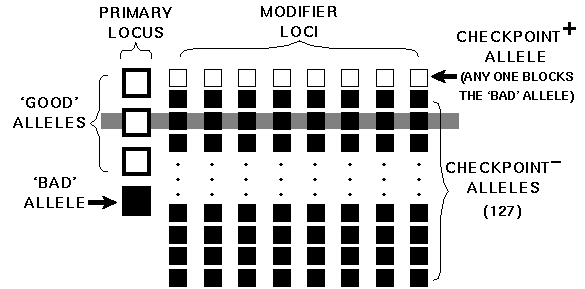Invited paper for the Evolvability Workshop at the Artificial Life 7 Conference, Portland Oregon.

The opportunistic character of adaptation through natural selection can lead to `evolutionary pathologies'---situations in which traits evolve that promote the extinction of the population. Such pathologies include imprudent predation and other forms of habitat over-exploitation or the `tragedy of the commons', adaptation to temporally unreliable resources, cheating and other antisocial behavior, infectious pathogen carrier states, parthenogenesis, and cancer, an intra-organismal evolutionary pathology. A condition that can prevent the evolution of evolutionary pathologies is population fragmentation, with local extinctions and recolonizations---i.e.metapopulation dynamics. Can metapopulation dynamics suppress not only the occurrence of the pathological trait, but its rate of generation by mutation, i.e. its evolvability? A model is constructed in which one locus controls the expression of the pathological trait, and a series of modifier loci exist which can prevent the expression of this trait. It is found that multiple `evolvability checkpoint' genes can evolve to prevent the generation of variants that cause evolutionary pathologies. The consequences of this finding are discussed.